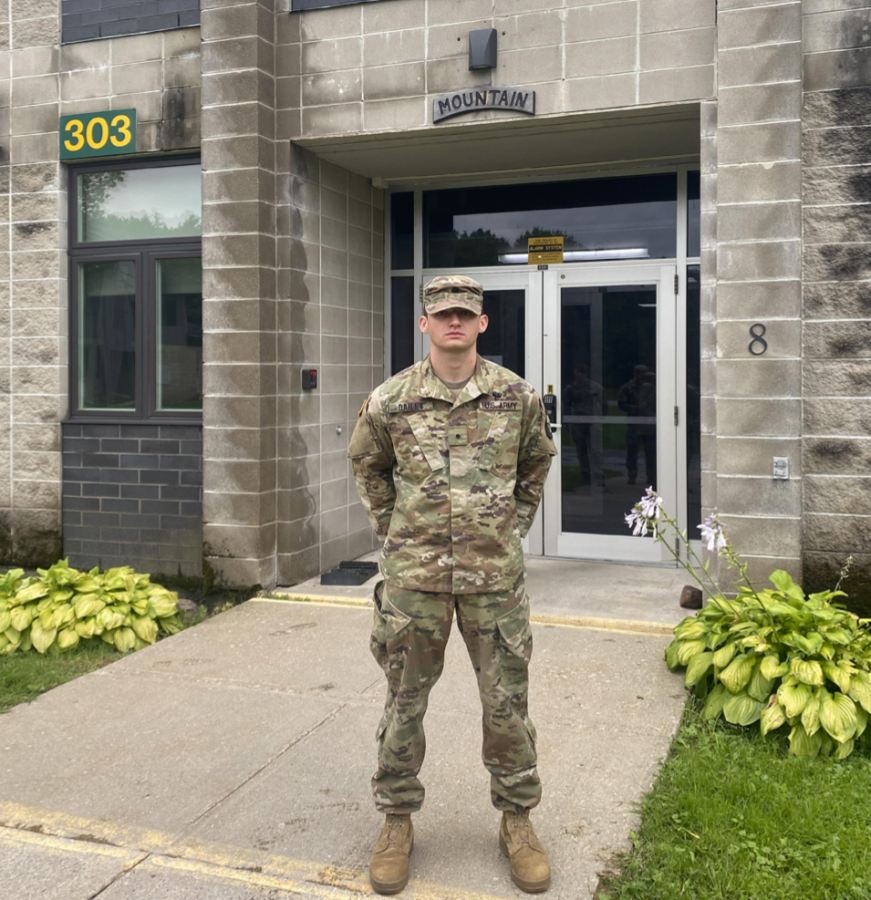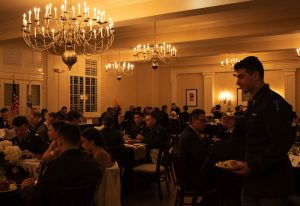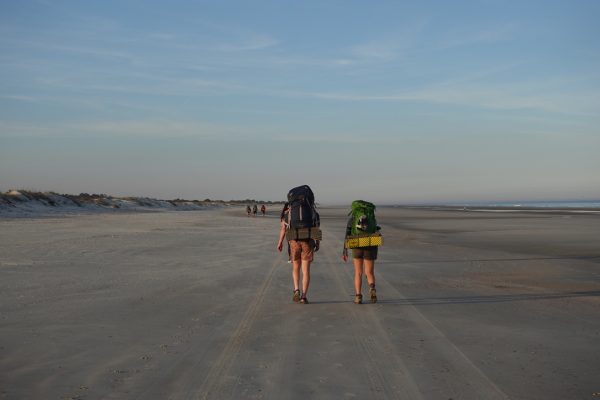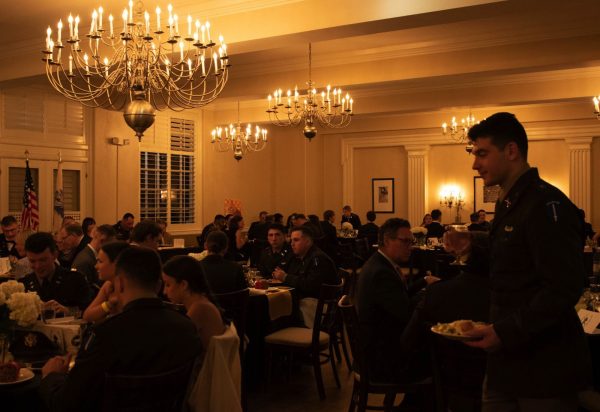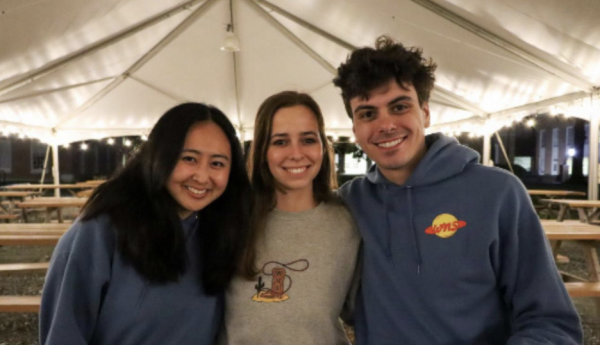Deacon Profile: Matthew Dailey
The ROTC cadet looks to excel in the U.S. Army
Matthew Dailey (’25) stands in front of the Army Mountain Warfare School.
October 31, 2022
Sophomore ROTC cadet Matthew Dailey has always known that he wanted to be in the U.S. Army. When he was little, he loved Civil War comic books, military-themed coloring books and playing with his hundreds of little Army soldier figurines. Dailey’s interest stems from his relationship with his father, John Dailey (‘87), who was also an ROTC cadet at Wake Forest and went on to serve as an officer in the U.S. Army.
“My dad has influenced me in a lot of ways,” Dailey shared. “He shows me how important it is to keep a level head in all situations no matter how much stress you’re under or how bad things are. He is also very stoic and that’s one of the things he’s taught me. It really relates to being in the Army because things really never go as planned and it’s a very stressful and anxiety-inducing atmosphere.”
When Dailey received a four-year ROTC Scholarship at Wake Forest, his dreams of joining the U.S. Army became a reality. He is now an MS II, the Sophomore ranking, in the program. Apart from the day-to-day ROTC commitments — including workouts three to five times a week — Dailey had the unique opportunity to attend Army Mountain Warfare School for two weeks in September.
Army Mountain Warfare School offers two-week-intensive Basic and Advanced Mountaineering courses multiple times a year at Camp Ethan Allen Training Site in Jericho, Vermont. Dailey was selected by a Wake Forest Cadre to attend the summer course in September of this year.
“You go for two weeks. In the first week, they break you in a little bit with classroom stuff,” Dailey said. “You start going out into the field on Wednesday of the first week, and then after that you go out to the field every day until you leave.”
While out on the field, the cadets are trained in mountain warfare and cold weather combat skills and tactics before they are tested on them on the final day of camp. These skills include an array of ropes tests and systems, such as hauling, rappelling, and body-carrying systems, among other things.
Each day Dailey woke up at 6:15 a.m., put on his uniform, went to the dining facility, gathered his gear and reported with his squad for check-in before being out on the field by 7:15 a.m. His squad would then ruck — a jog or fast-walk in uniform with a rucksack — for miles to get to the designated training spot for the day.
“Sometimes the rucks were very difficult, and sometimes they were shorter,” Dailey said. “The last one we did was around four miles. We went up a mountain, back down it, walked over a mile, and then went up like a two-and-a-half-mile mountain. There were people throwing up during it.”
Once the team got to the training spot for the day, they were taught the ropes systems and other skills for that day.
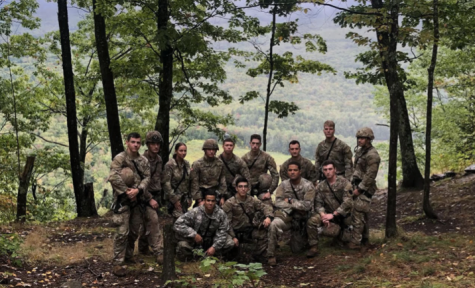
“You could be rappelling rock climbing rope systems, or whatever the lesson was for the day,” Dailey said. “You would do that for about 2-3 hours, eat lunch, and then practice that skill again or walk somewhere else — about another two miles or so — to do another skill.”
The training did not stop after returning from the field. Sometimes, the cadets had multiple classroom sessions in the evenings. Dailey practiced his ropes every night before going to bed.
“Everyday consisted of rucking up to six or seven miles in the mountains, practicing rope systems, a class or two and then practicing on your own. If you don’t practice on your own, you’re screwed,” Dailey said.
Six undergraduate cadets were chosen to attend the camp. By the end of camp, Dailey was one of only three undergraduate cadets to graduate from the program.
“The feeling that I got when I finished was pretty awesome,” Dailey said. “I had been preparing for it for four months, and I hadn’t thought about anything else. It was the first thing I thought of every day for that whole time. Finishing it was very, very rewarding.”
The part-classroom-and-field training course is one of the smallest of the Army training schools. Dailey is one of only five Wake Forest cadets to have had the opportunity to attend. Other training schools include Airborne, Air Assault and Northern Warfare, which have had 170, 55, and seven Wake Forest cadets attend each, respectively.
“It’s pretty unique in that a lot of people are selected to do it, and it gives you a lot of respect among the other ROTC cadets and cadres,” Dailey said.
Besides Dailey, senior cadet Andrew Harlow is the only other Wake Forest cadet to attend Mountain Warfare in the past 20 years. Harlow attended the camp last year and was able to share his experiences and knowledge with Dailey before Dailey left for Mountain Warfare this year. Dailey truly believes he could not have succeeded without Harlow’s support.
“I credit all my success to Harlow because right when we found out I got selected, he gave me all the equipment he used to practice when he went,” Dailey said. “It was his equipment and his pointers that helped me excel when I got there.”
When the ROTC cadets are commissioned during their senior year, each cadet receives a score that will be used to determine their position in the Army after they graduate. Going to a training school like Mountain Warfare can help boost a cadet’s score and open up more opportunities. Dailey hopes that graduating from Mountain Warfare will help him receive the Infantry slot he is hoping for after his time at Wake Forest.
Apart from getting him closer to his career aspirations, Dailey brought home many life lessons from the program.
“It definitely wasn’t easy at any point,” Dailey said. “The fact that it was very hard gave me more confidence in school. I was behind in all my classes when I got back. I studied a lot there and knew I could catch back up here. It kind of confirmed the idea that I can do hard things, because that’s the hardest thing I’ve ever had to do.”


